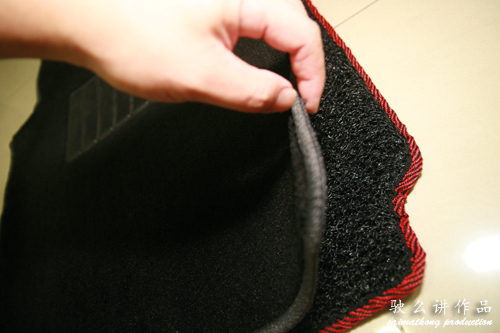SWINE FLU – Influenza A virus subtype H1N1
Recently a lot of ppl talking about SWINE FLU – H1N1, so I found something useful and thought of sharing with all of you. Better be safe than sorry. Spend a few minutes to read and tell your loved one about the facts and things that you know could save them.
WHAT IS SWINE FLU ?
Swine Influenza (swine flu) is a respiratory disease of pigs caused by type A influenza viruses (H1N1 subtype) that causes regular outbreaks in pigs. People do not normally get swine flu, but human infections can and do happen.
Swine flu viruses have been reported to spread from person-to-person, but in the past, this transmission was limited and not sustained beyond three people.
SIGNS AND SYMPTOMS
The symptoms of swine flu in people are similar to the symptoms of regular human flu and include fever, cough, sore throat, body aches, headache, chills and fatigue. Some people have reported diarrhea and vomiting associated with swine flu. In the past, severe illness (pneumonia and respiratory failure) and deaths have been reported with swine flu infection in people. Like seasonal flu, swine flu may cause a worsening of underlying chronic medical conditions.
The symptoms of swine flu in people are similar to the symptoms of seasonal flu in humans and may include:
– Fever (greater than 100°F or 37.8°C)
– Sore throat
– Cough
– Stuffy nose
– Chills
– Headache and body aches
– Fatigue
HOW DOES SWINE FLU SPREAD ?
Spread of this swine influenza A (H1N1) virus is thought to be happening in the same way that seasonal flu spreads. Flu viruses are spread mainly from person to person through coughing or sneezing of people with influenza. Sometimes people may become infected by touching something with flu viruses on it and then touching their mouth or nose.
MINIMISING THE RISK OF AN EPIDEMIC
– Culling – killing large numbers of infected and potentially
infected animals
– Quarantine – putting infected farms in quarantine
– Vaccinating birds against the virus – remains controversial and contentious. Indonesia launched poultry vaccination in July 2004 and Thailand is considering the same measure
– Latest normal flu vaccine – for people involved in culling operations to minimize the risk of being infected by both bird flu and human flu simultaneously
HOW CAN SOMEONE WITH THE FLU INFECT SOMEONE ELSE ?
Infected people may be able to infect others beginning 1 day before symptoms develop and up to 7 or more days after becoming sick. That means that you may be able to pass on the flu to someone else before you know you are sick, as well as while you are sick.
WHAT SHOULD I DO TO KEEP FROM GETTING THE FLU ?
First and most important: wash your hands. Try to stay in good general health. Get plenty of sleep, be physically active, manage your stress, drink plenty of fluids, and eat nutritious food. Try not touch surfaces that may be contaminated with the flu virus. Avoid close contact with people who are sick.
SAFETY PRECAUTIONS
– Avoid live animal markets, poultry and pig farms in affected countries
– Always maintain high levels of personal hygiene, especially before and after food preparation and in-out of toilets. Regular wash your hands
– Cook pork thoroughly
– Do not consume half-done pork
– While in an affected region, seek immediate medical attention if you develop influenza-like symptoms. (High Fever, body pain, coughing and red nose)
TRAVEL HEALTH
Spreading Country as on April 27, 2009 are ; Mexico, US, New Zealand, Israel, China
– WHO does not recommend any travel restrictions to areas experiencing outbreaks, including countries, which have reported, associated cases of human infection.
– WHO does not, at present recommend the routine screening of travelers coming from affected areas.
WHAT CAN I DO TO PROTECT MYSELF FROM GETTING SICK ?
There is no vaccine available right now to protect against swine flu. There are everyday actions that can help prevent the spread of germs that cause respiratory illnesses like influenza. Take these everyday steps to protect your health:
– Cover your nose and mouth with a tissue when you cough or sneeze.Throw the tissue in the trash after you use it
– Wash your hands often with soap and water, especially after you cough or sneeze. Alcohol-based hand cleaners are also effective
– Avoid touching your eyes, nose or mouth. Germs spread this way
– Try to avoid close contact with sick people
IS IT SAFE IF I EAT PORK ?
Swine influenza viruses are not spread by food. You cannot get swine influenza from eating pork or pork products. Eating properly handled and cooked pork products is safe.
THERE ARE EVERYDAY ACTIONS PEOPLE CAN TAKE TO STAY HEALTHY
– Cover your nose and mouth with a tissue when you cough or sneeze. Throw the tissue in the trash after you use it
– Wash your hands often with soap and water, especially after you cough or sneeze. Alcohol-based hands cleaners are also
effective
– Avoid touching your eyes, nose or mouth. Germs spread that way
WHAT IS THE BEST WAY TO KEEP FROM SPREADING THE VIRUS THROUGH COUGHING OR SNEEZING ?
If you are sick, limit your contact with other people as much as possible. Do not go to work , stay at home or in your hotel room . Cover your mouth and nose with a mask when coughing or sneezing. It may prevent those around you from getting sick. Put your used tissue in the waste basket. Cover your cough or sneeze if you do not have a mask. Then, clean your hands, and do so every time you cough or sneeze
TRAVEL ADVISORY
DO YOU REALLY NEED TO TRAVEL?
Before any travel to affected area
– Educate yourself and others traveling with you
– Take specific vaccinations as recommended by
CDC of both US and Thailand
– Assemble travel health kit
– Check your health insurance plan
During travel to an affected area
– Avoid all direct contact with pigs and visiting thefarms
– Practice careful and frequent hand washing
– Consume thoroughly cooked food
– Seek immediate medical attention if symptoms occur
After your return
– Monitor your health for 10 days
– If you become ill with high fever consult a doctor immediately.
FOOD SAFETY ISSUES
– Cook food thoroughly
– Follow good hygienic practices
– No “pink” parts for meat
– Buy food from safe and established supermarkets
– Check the expiry date (if any)
– Choose a clean and known restaurant for dining
GENERAL HEALTH TIPS
– Avoid close contact
– With sick people. Keep safe distance
– Stay home when you are sick
– If possible, stay home from work, school, and errands
– Cover your mouth and nose
– Cover mouth and nose with tissue when coughing or sneezing
– Clean your hands
– Frequent hand washing will protect you from germs
– Avoid touching your eyes, nose or mouth
– Germs often spread when a person touches something that is contaminated and then touches his or her eyes, nose or mouth
WHAT SHOULD I DO IF I GET SICK ?
In children emergency warning signs that need urgent medical attention include:
– Fast breathing or trouble breathing
– Bluish skin color
– Not drinking enough fluids
– Not waking up or not interacting
– Being so irritable that the child does not want to be held
– Flu-like symptoms improve but then return with fever and worse cough
– Fever with a rash
In adults, emergency warning signs that need urgent medical attention include:
– Difficulty breathing or shortness of breath
– Pain or pressure in the chest or abdomen
– Sudden dizziness
– Confusion
– Severe or persistent vomiting
IS THERE A HUMAN VACCINE TO PROTECT FROM SWINE INFLUENZA ?
There are no vaccines that contain the current swine influenza virus causing illness in humans. It is not known whether current human seasonal influenza vaccines can provide any protection. Influenza viruses change very quickly. It is important to develop a vaccine against the currently circulating virus strain for it to provide maximum protection to the vaccinated people. This is why WHO needs access to as many viruses as possible in order to select the most appropriate candidate vaccine virus.
WHAT DRUGS ARE AVAILABLE FOR TREATMENT ?
Antiviral drugs for seasonal influenza are available in some countries and effectively prevent and treat the illness. There are two classes of such medicines, 1) adamantanes (amantadine and remantadine), and 2) inhibitors of influenza neuraminidase (oseltamivir and zanamivir).
What precautions are in place in Malaysia?
– The Health Ministry’s operations room in Putrajaya has started a 24-hour monitoring of the situation. The public can call 03-8881 0200/300 for enquiries.
– Those returning from Latin American countries and found to have flu-like symptoms will be quarantined.
– Health Ministry officials are conducting health screenings on passengers arriving from the United States.
– Thermal scanners will be placed at international airports to speed up the screening process for A (H1N1) flu.
– Public and private medical practitioners have been instructed to report to the district health office any patient with influenza-like illnesses or severe pneumonia symptoms and who had travelled to the affected countries after April 17.
– Owners of the 797 pig farms nationwide have been ordered to immediately contact the nearest Veterinary Services Department office or the Animal Disease Control Centre if their workers or animals show symptoms linked to the A (H1N1) flu.
—————
Original information get from : Swine-Flu-INFLUENZA.pdf from forwarded email.
Where can I get more information?
For more information, go to the Health Ministry (www.moh.gov.my) or call the Ministry’s hotline at (03) 8881-0200/300.
Useful Links:
World Health Organization: www.who.int
Centers for Disease Control and Prevention: www.cdc.gov
Homeland Security Department: www.dhs.gov
WHO A (H1N1) flu page: http://www.who.int/csr/disease/swineflu/en/index.html

 9,196 views
9,196 views

